In a country where the caesarian birth rate is 70% in the private sector and a caesarian birth is as easy to request as a chocolate milkshake, women may wonder why on earth we would even consider natural birth. All the uncertainty and drama (and lets not forget the PAIN) of labour can be avoided, and we can book a date time and venue for the arrival of our precious offspring. Besides, the thought, and this is not often mentioned, of a baby that appears quite large by the end of a pregnancy, making an exit (or entrance) through what appears to be a very small ‘opening’, is quite frankly, terrifying. Even the public sector has a rising caesarian birth rate of almost 30% and I have heard women beg for what they imagine to be the easy way around the natural birth process.
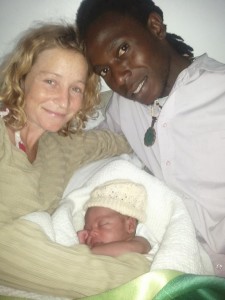
I see clients, on a weekly basis, imploring me to help them have a natural birth after one, two and sometimes even three caesarian births. They speak about the nagging sense of loss, the feelings of failure, the terrible pain afterwards, the struggle to hold and feed their babies, the depression that lasts for months. I have women who come to me in Cape Town from as far afield as Limpopo and Namibia, because they have heard that there is a midwife and a doctor in Cape Town who will help them give natural birth. When I ask them why they want natural birth so badly, they tell me various themes. They knew they could give natural birth but were coerced into a ceasarian birth, they didn’t have enough time to go into labour, they were frightened when the doctor spoke about ‘damage to the baby’ or ‘fetal distress’ or ‘your cervix is not dilating fast enough’. They hated not being able to get up and walk around without pain after the birth. They felt cheated of the experience of natural birth. They struggled with breastfeeding, the baby got ‘colic’, they have other children they need to care for and this is more difficult after a caesarian birth. I could go on.
Perhaps I should talk about the benefits of natural birth before I wax eloquent on the dangers of ceasarian section. Lets keep this positive.
Oxytocin, we have discovered, is a hormone released during labour and it induces labour contractions, which reach a crescendo just before the baby’s birth. It is also know as the hormone of love, because it is released during touch, eye-contact, mealtimes, sex and breastfeeding. After a natural birth women have peak levels of oxytocin in their brains and bloodstream. This suggests we are wired for loving after a natural birth.
Beta-endorphins, opiate like substances, are also produced and enhance the progress of labour by keeping the mother relaxed. Beta-endorphins also act on the limbic system to release dopamine, a powerful reward hormone that encourages tenacity and feelings of elation when a goal is achieved. Both mother and unborn baby receive the benefits of ever increasing concentrations of these chemicals throughout the process of labour and birth itself. During the actual pushing stage, adrenalin and noradrenalin, the ‘high-performance’ hormones, are simultaneously released to aid the expulsion process and prime the unborn baby for adaptation to his first breath. Never at any other time, in a woman or a baby’s life, are there such high levels of ‘feel good’ hormones and ‘love’ neuro-chemicals in the bloodstream. It is as if nature wishes to prime human beings for the best possible chance of bonding and attachment with our offspring, giving our babies the best possible chance of flourishing.
Surely we need to think about giving ourselves the best possible chance for these ‘birth’ hormones to be released? That’s just the rub. Too much thinking during labour actually hinders the release of these feel-good hormones. The thinking needs to be done before the labour, during the pregnancy, or even better, before conception takes place. These hormones work best during labour when a mother is confident, calm, undisturbed, in a familiar environment and surrounded by calm, loving women (including a loving husband!!) with whom she is familiar. These prerequisites for a natural birth are not achieved by chance and they are not small.
Lets talk about confidence first. How does a fearful mother become confident of her capacity to give birth? She needs to get the right information from the right people. Childbirth educators are a dime for a dozen these days when it is fashionable to go to antenatal classes and not everyone is going to give you the info you need to achieve a natural birth. So here are my tips:
- Find a childbirth educator who teaches orgasmic birth, birthing from within, the mama bamba way, hypnobirthing, ecstatic birth, active birth
- Find an independent midwife whose philosophy supports undisturbed birth to assist and attend your birth
- Find a doula, a woman who remains with you and nurtures you during labour
- Find a doctor who has a reputation for supporting natural birth
- Find a hospital that supports independent midwives
- Decide to have a homebirth
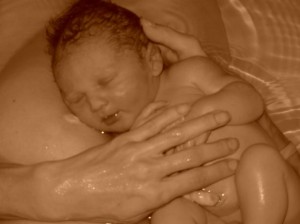
All of the abovementioned will contribute to the prerequisites for a natural birth, in calm, non interventive surroundings. Not to mention all the other benefits of natural birth, such as, the ability to walk within an hour after birth, to feel like a million dollars, to hold your baby without pain in the abs, to bond and breastfeed in comfort, a baby that is undrugged, alert and responsive. Let me mention that the pelvis is designed to bring forth babies and the vaginal and perineal tissues are extremely elastic and designed to stretch and spring back to their previous status after birth (or sex for that matter!). And let’s not forget the EPI-NO (or ‘pussy-stretcher’ as my obstetrician so aptly put it), a little device that helps prepare your perineum for the birth process.
While us midwives talk about the dangers of caesarian births, the obstetricians state that a ceasarian birth is a safe operation. Granted, under skilled hands and full medical facilities a caesarian birth is much safer than it used to be and when the risks are high and it is medically indicated, it may well be the safest option. However, does the ordinary women really know what the risks may be of a caesarian birth? Does she know that the medical aid companies require medical justification for caesarian birth before they will cover the costs? I have heard obstetricians joke about the ease with which they can justify the need for a caesarian section to medical aid companies. Who will question their diagnoses? Does anyone know what the long term effects will be on a generation of children born by unnecessary caesarian birth? Does anyone know what the long term impact of doing caesarian births are on the women?
Remember, obstetricians are not trained to assist at natural births, they are trained to assist when there are pathological complications. I have yet to meet an obstetrician who will sit for 12 to 24 hours next to a woman in labour holding her hand, wiping her face, walking her to the toilet, whispering encouragment in her ear. Obstetricians are trained to be nervous of natural birth and to take action and intervene when they deem it expedient. Let’s give them credit where it is due – obstetricians are great surgeons, they are competent when there are health complications, they save lives when lives are at risk. They pay alot for litigation insurance, so need a large client base. They have busy practices, and thus are pressed for time. They also need to sleep!
Research tells us and it is well established, that babies born by caesarean have an increased risk of respiratory problems after birth. Babies born by caesarean section are often born too soon, struggle to breastfeed and also have an increased risk of diabetes, allergies and asthma in childhood. Prolactin, is another magical hormone like oxytocin, and is also stimulated by skin to skin contact when the baby latches onto the nipple and suckles. Prolactin helps the mom to respond to her new baby, increases her appetite and reduces stress hormones. Separation of mother and baby directly after a caesarian birth interferes with this hormonal and neuro-chemical communication between them.
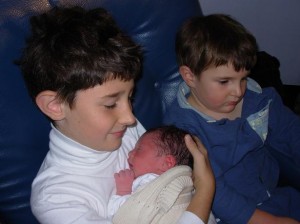
Natural birth is medically safer for mother and baby. Any intervention or interference in the physiological birth process has the potential to lead to what we call iatrogenic complications. In other words, one intervention will lead to another, then another and a mom is more likely to end up having a caesarian birth when the birth process is interfered with than when she is left alone to labour spontaneously. Drugs given during labour, including anesthesia, epidural and/or spinal blocks may drop the mother’sblood pressure, and cause fetal distress. A caesarean birth is major abdominal surgery, and with it comes all the risks of having any surgery. A Mom who has a cesarean section is twice as likely to require an emergency hysterectomy and is more likely to require re-hospitalization. She is more likely to develop blood clots including those which can cause strokes and she is more likely to get an infection. Not only that, but mom’s future pregnancies may be affected. After surgery, mom will be at higher risk for problems with infertility, ectopic pregnancy, placenta previa and placenta accretta in future pregnancies.
A woman in labour needs privacy, familiar and trusted caregivers, encouragement and understanding of the natural birth processes, an undisturbed environment at the moment of birth and for at least one hour afterwards. When she is cam and confident, her body knows what to do and will triumphantly give birth to life without harm to mother or baby. So, Why Natural Birth? Simply put, if you are healthy, less risk, more pleasure!
Some interesting links on the subject:
www.birthworks.co.za/articles/hypnobirthing®-taking-world-calm
www.mamabamba.co.za
www.orgasmicbirth.com
www.sarahbuckley.com
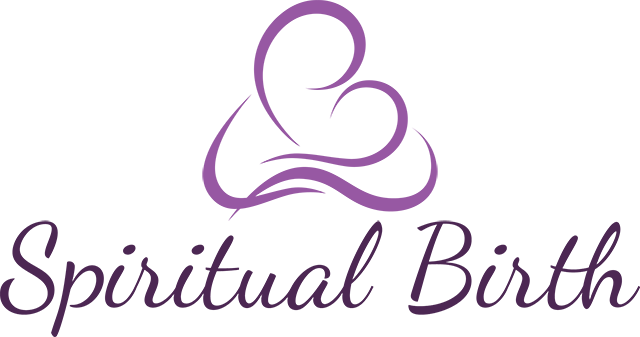
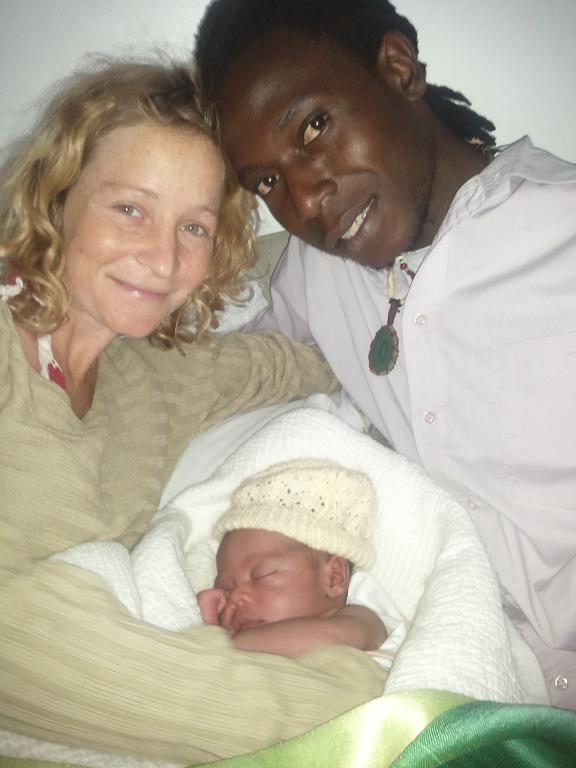
Brilliant! Shared and thank you.
One other thing that manyn moms say that also upsets me is the ‘I had a natural birth with an epidural.’ That is by no means a natural birth!
Epidural prevents the baby from receiving the natural endorphins which are the body’s response to pain in labour. So the epidural baby has much much more uncomfortable and painful birth even thought the mother doesn’t feel a thing!
Not to mention the increased risk (up to 80% higher than natural birth) that c section will cause Post Partum Depression…